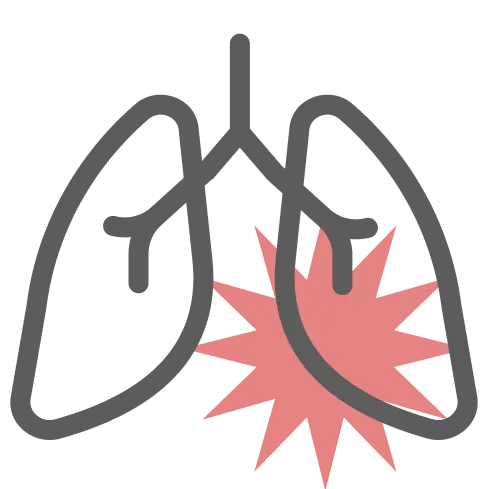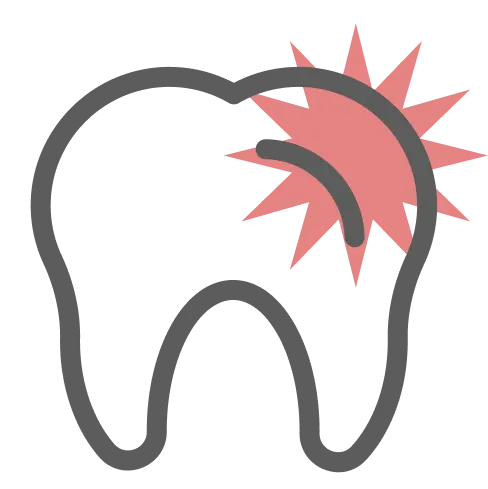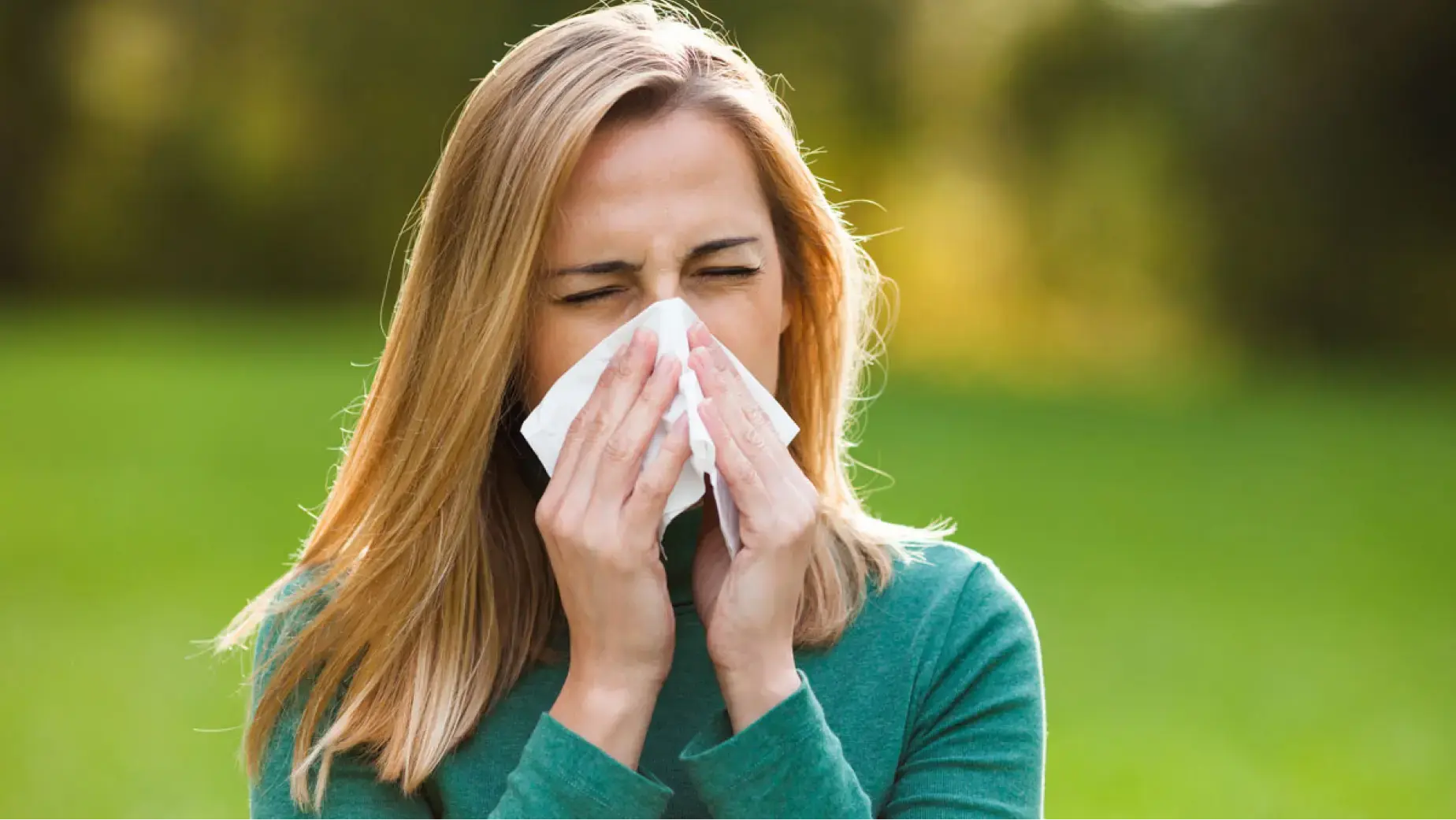Will Not Treating My Allergies Build My Immunity?
When it comes to allergies, the idea that avoiding treatment can build immunity is a common misconception. In reality, not treating your allergies does not strengthen your immune system; instead, it often leads to prolonged suffering from symptoms such as sneezing, itching, and congestion. Allergies are the result of your immune system overreacting to substances that are generally harmless, like pollen or pet dander.
Without proper treatment, your body continues to respond to these allergens with inflammation and other uncomfortable symptoms.
Not Treating Allergic Rhinitis Symptoms May Increase Your Risk of Other Health Complications*
Untreated allergies may lead to more serious health complications.2 When allergies are ignored, mucus buildup from a runny or stuffy nose, for example, can create a breeding ground for bacteria which may increase the risk of infections such as sinus infections. Sinus infections can cause pain, pressure and congestion which can be more uncomfortable than allergy symptoms.
Allergic rhinitis can also affect the Eustachian tubes,2,3 which connect the middle ear to the back of the nose. When these tubes become blocked due to mucus buildup or inflammation, fluid can accumulate in the middle ear, creating a perfect environment for bacteria to thrive and potentially cause an ear infection.

1. Increased Risk of Asthma
Allergic rhinitis and allergic asthma are closely linked. Untreated allergic rhinitis can worsen allergic asthma symptoms or even cause asthma to develop in individuals who are already at risk. 5-7 Allergic reactions in the nasal passages can also affect the lungs and airways in some people, causing wheezing, shortness of breath, and other asthma-related symptoms.

2. Decreased Productivity & Quality of Life
Anyone who’s ever experienced untreated allergies symptoms knows how significantly they can impact daily life. Symptoms such as a runny nose, itchy eyes, and congestion can make it difficult to concentrate and perform daily tasks efficiently.
Sleep quality can also be affected, leading to daytime fatigue from allergies and reduced productivity at work or school.4 Moreover, the constant discomfort can affect one’s self-confidence and limit participation in social and recreational activities, further diminishing overall quality of life.

3. Increased Risk of Dental Issues
Chronic nasal congestion from allergic rhinitis can lead to mouth breathing, which can have adverse effects on dental health. Mouth breathing may cause dry mouth, leading to an increased risk of cavities and gum disease. Additionally, the obstruction of the upper airway from nasal congestion can affect the alignment of teeth, particularly in children, potentially requiring consult from airway-centric orthodontists, allergists, and others healthcare professionals.8
Ways To Manage Allergic Rhinitis Symptoms: How To Treat Allergic Rhinitis To Avoid Long Term Effects
Managing allergic rhinitis symptoms can significantly improve your quality of life. By taking proactive steps, you can reduce discomfort and lessen the risk of developing other health complications. One effective way to manage allergy symptoms is by avoiding allergens at home. This can include regular cleaning to reduce dust and mold, using air purifiers, and keeping windows closed during high pollen seasons. For more detailed tips, refer to our article on creating an allergen-free home environment.
In addition to avoiding allergens, there are several treatment options available to help manage allergic rhinitis symptoms. Antihistamines are a common and effective over the counter choice for many people. These medications work by blocking the effects of histamine, a chemical released by the body during an allergic reaction, thereby reducing symptoms such as itching, sneezing, and runny nose.
Nasal sprays and rinses are another useful treatment option, providing targeted relief directly to the nasal passages.9 These sprays can help reduce inflammation and congestion, making it easier to breathe.
By choosing to manage your allergies with a combination of strategies rather than ignoring them, you can better manage your allergic rhinitis symptoms and make a significant difference in how you feel and function on a daily basis and beyond.
References:
Nur Husna SM, Tan HT, Md Shukri N, Mohd Ashari NS, Wong KK. Allergic Rhinitis: A Clinical and Pathophysiological Overview. Front Med (Lausanne). 2022 Apr 7;9:874114. doi: 10.3389/fmed.2022.874114. PMID: 35463011; PMCID: PMC9021509.
Skoner D. Complications of allergic rhinitis. Journal of Allergy and Clinical Immunology. Published June 2000. Accessed November 25, 2024. https://www.jacionline.org/article/S0091-6749(00)44765-2/fulltext
Sinus infection (Sinusitis). Cleveland Clinic. Reviewed March 3, 2023. Accessed November 25, 2024. https://my.clevelandclinic.org/health/diseases/17701-sinusitis
Akhouri S, House SA. Allergic Rhinitis. StatPearls Publishing LLC. Updated July 2023. Accessed November 25, 2024. https://www.ncbi.nlm.nih.gov/books/NBK538186/
Wise SK, Damask C, Roland LT, et al. International consensus statement on allergy and rhinology: Allergic rhinitis – 2023. Int Forum Allergy Rhinol. 2023; 13: 293–859. Published March 2023. Accessed November 25, 2024. https://doi.org/10.1002/alr.23090
Bousquet, J.J., N. Khaltaev, A. A. Cruz,et al. Allergic Rhinitis and its Impact on Asthma (ARIA) 2008. European Journal of Allergy and Clinical Immunology. Published April 2008. Accessed November 25, 2024. https://onlinelibrary.wiley.com/doi/10.1111/j.1398-9995.2007.01620.x
Allergies and asthma: Double trouble. Mayo Clinic. Reviewed May 2021. Accessed November 25, 2024. https://www.mayoclinic.org/diseases-conditions/asthma/in-depth/allergies-and-asthma/art-20047458
Tamkin J. Impact of airway dysfunction on dental health. Bioinformation. Published January 2020. Accessed November 25, 2024. https://pmc.ncbi.nlm.nih.gov/articles/PMC6986941/#R02
Mount Sinai. Stuffy or runny nose - adult. Reviewed July 2023. Accessed January 31, 2025. https://www.mountsinai.org/health-library/symptoms/stuffy-or-runny-nose-adult
Links to other parties’ articles and websites are provided for convenience only. Kenvue is not responsible for their content.




